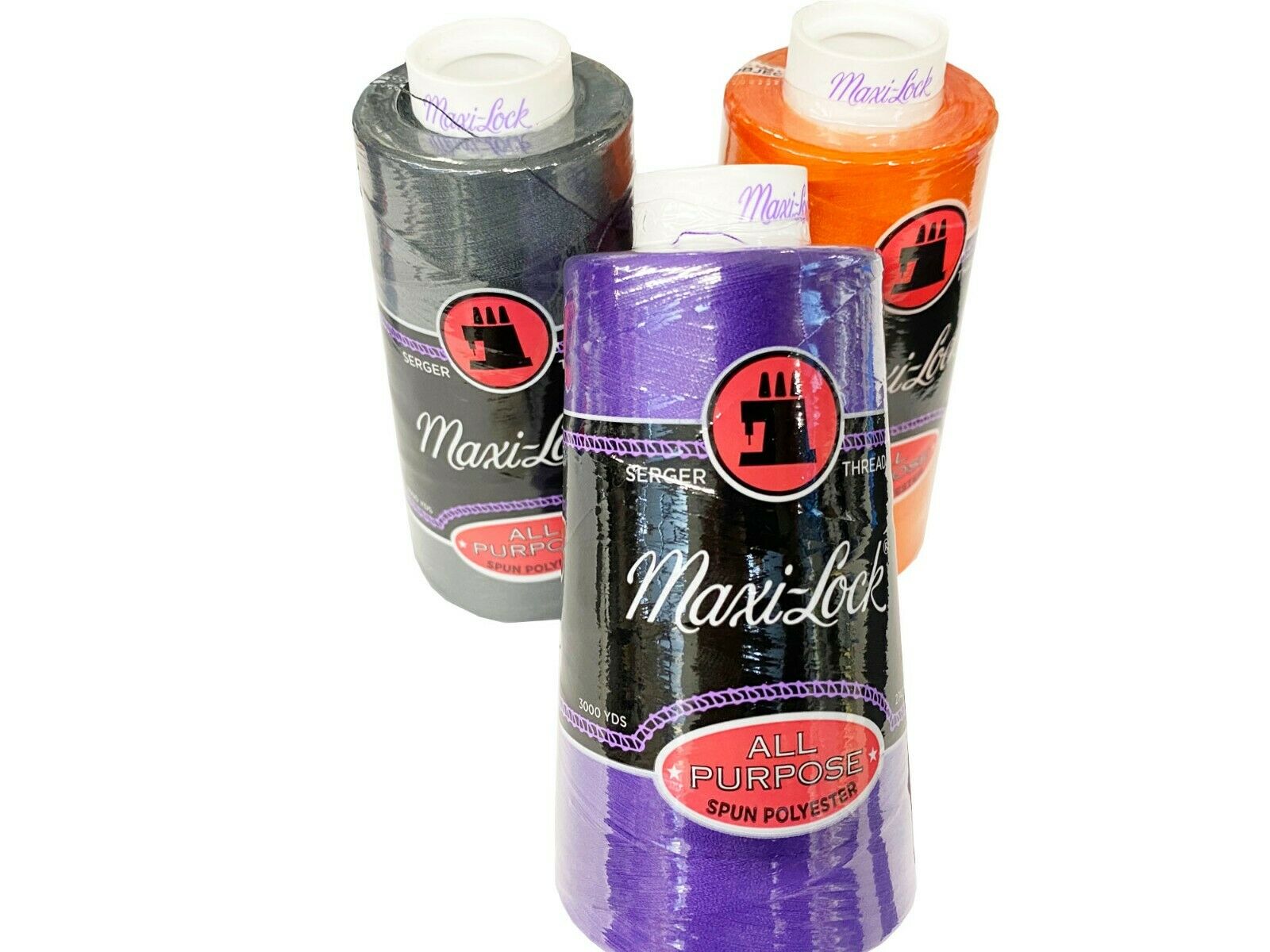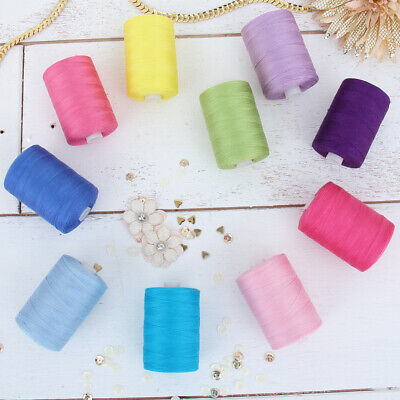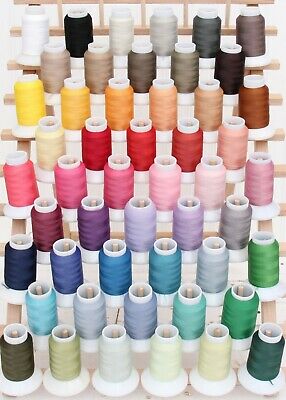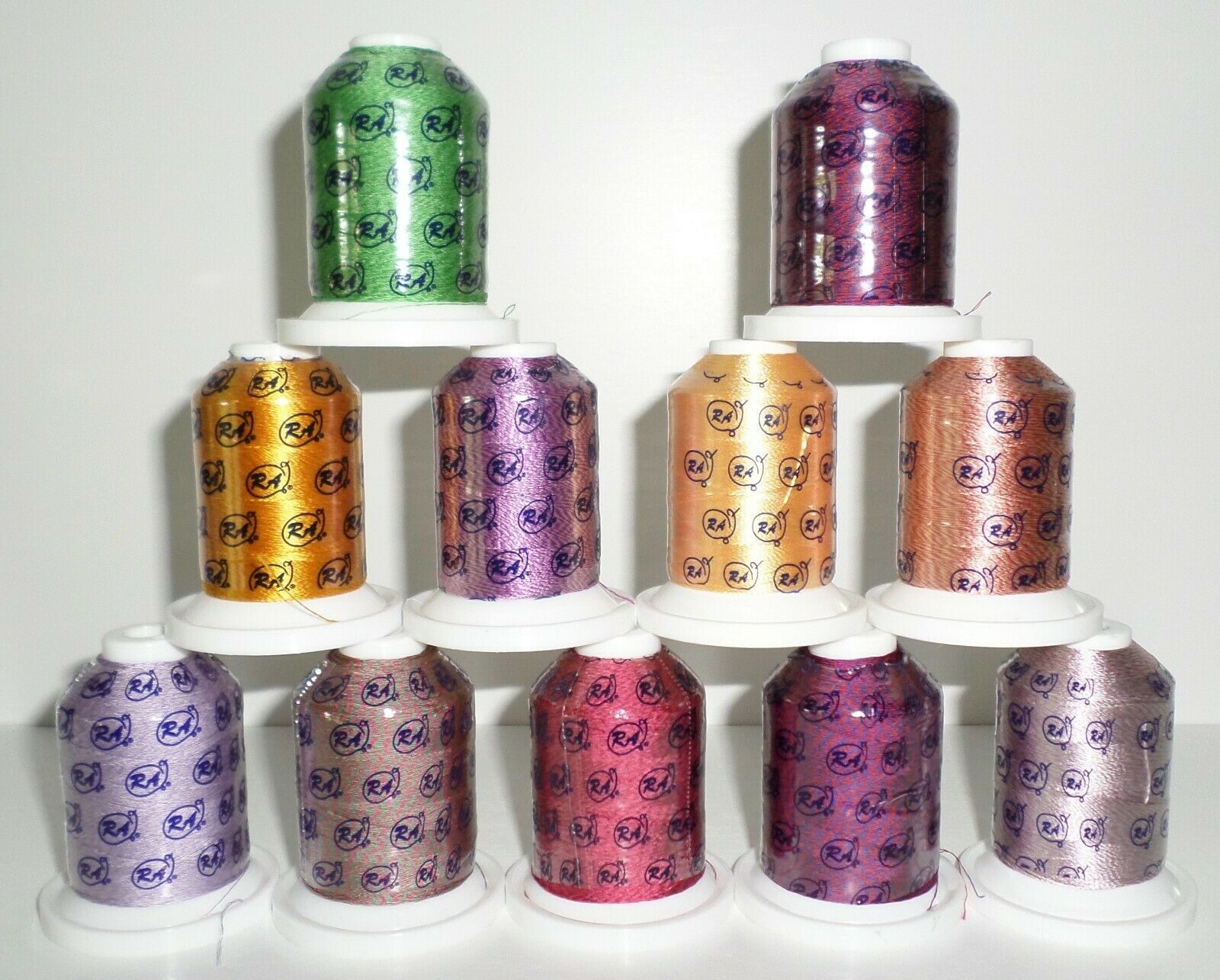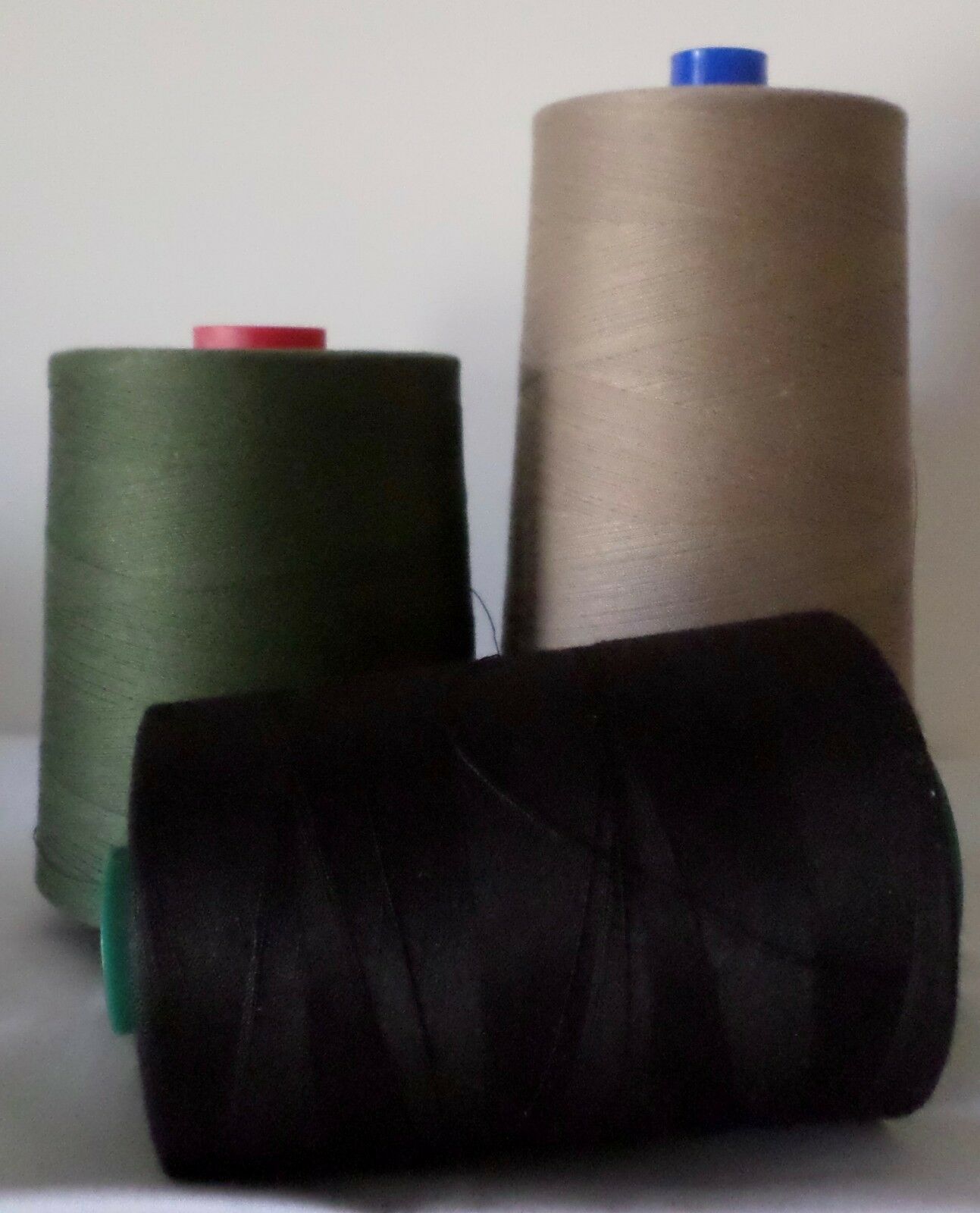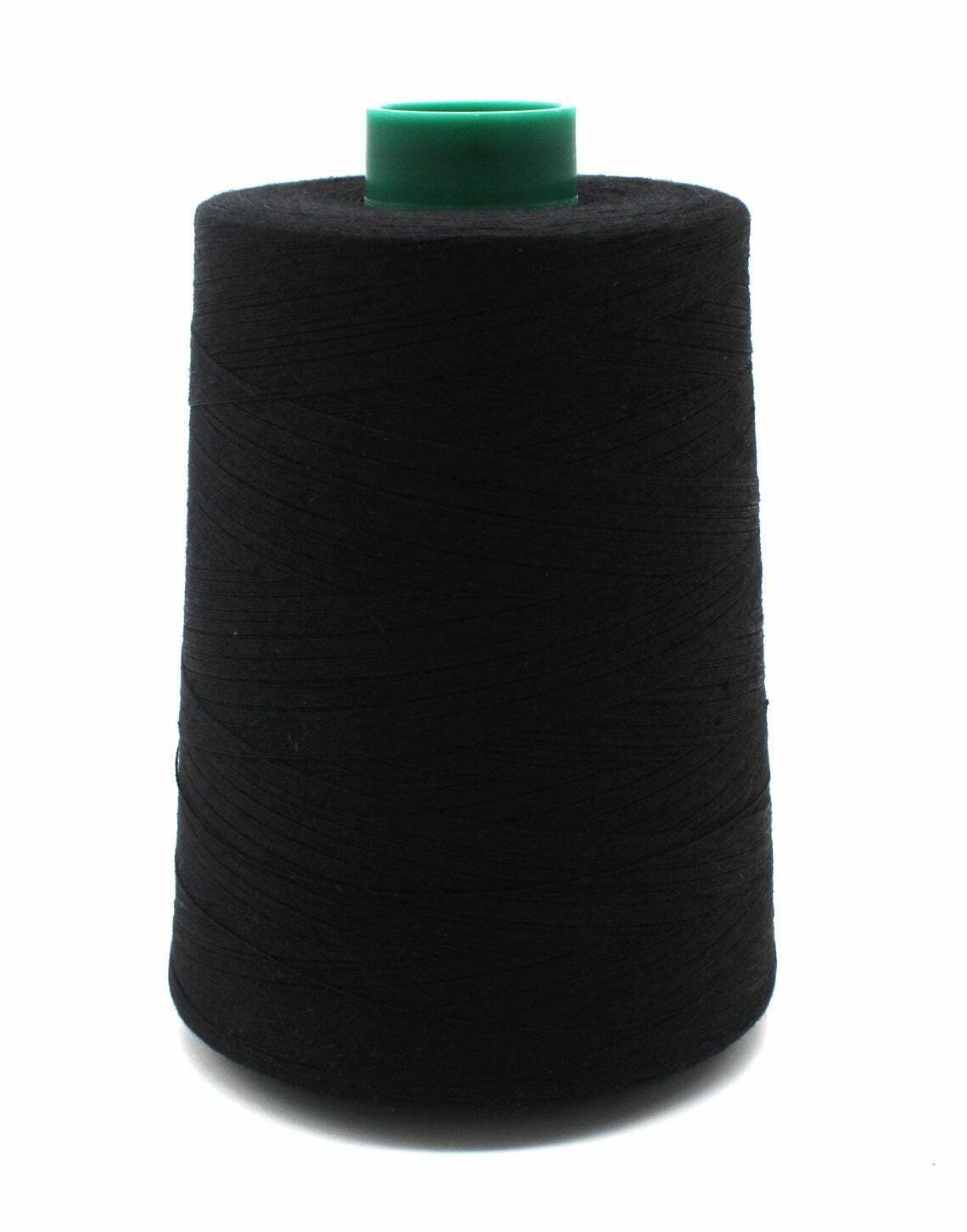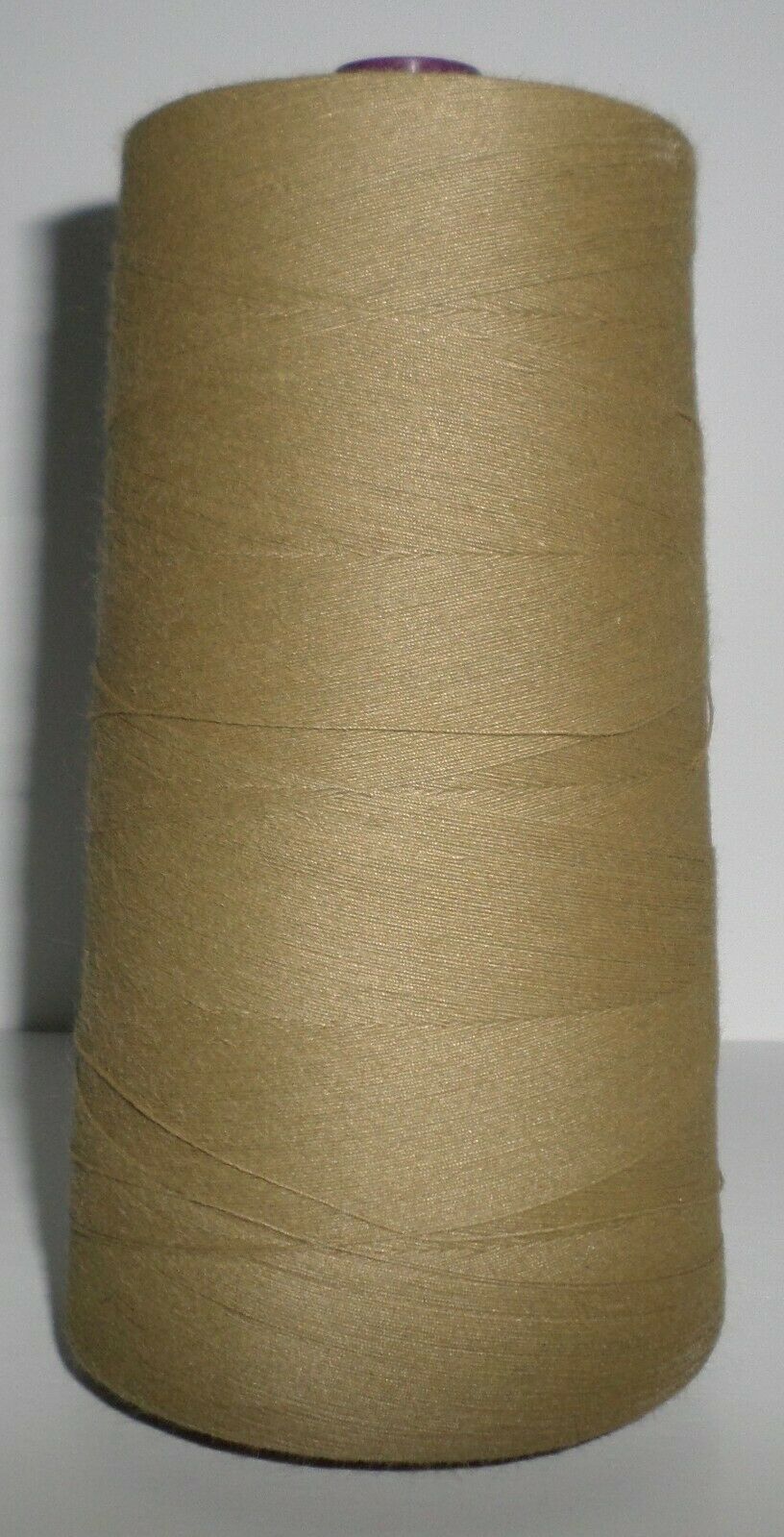-40%
Kanagawa 100% and #50 Silk Thread [ 043 - Sparkling Turquoise ]
$ 3.61
- Description
- Size Guide
Description
Kanagawa100% Silk Thread, 50 Weight
100 Meters per Spool
[ 043 - Sparkling Turquoise ]
Kanagawa 50 wt 100% Filament Silk Thread
– is 2 ply, 243 denier, and Tex 27. This is high quality filament thread is manufactured in
Japan and
sourced directly from
Japan
and known as Kanagawa silk. The 50 wt spools contain 100 meters (110 yards) of silk thread and offered in (90) ninety different and vibrant colors. This is considered an all purpose size used for construction, for digitized embroidery designs, or more visible quilting. Silk has a beautiful sheet which contrasts so well with cotton traditionally used in quilting. It is the easiest of silk threads to use due to its higher strength. It is used for hand piecing, embroidery and machine quilting. It is also used for wrapping fly and fishing rods as well as fly tying.
Weight
– is a way of indicating the thickness of a thread. The most common weight system specifies the length of the thread in kilometers required to weigh 1 kilogram. Therefore the higher the weight number the thinner the thread.
Denier
– is a weight specification that states how many grams 9,000 meters of the thread weighs. The greater the denier number the thicker the thread. The denier weight system also specifies the number of strands of the specified weight which are wrapped together to make the finished thread.
Tex
– is the mass in grams of 1,000 meters of thread. If 1,000 meters weighs 25 grams, it is
tex
25. Larger
tex
numbers are heavier threads.
Shipping and Handling Charges -
are set for the purchase of a single spool or card of thread. Every additional spool or card is {{detail_product_description}}.05 additional for shipping and handling. If purchasing thread from differing listings, I will combine shipments so that additional spools or cards of thread are calculated at {{detail_product_description}}.05 for shipping and handling. Although this should be done automatically. We ship via USPS to anywhere within the United States. After decades, I have settled on a pricing policy for shipping and handling that is fair to me and treats you in a manner in which I would want to be treated.
Perhaps more information is needed on shipping and handling. The first spool of thread has a large cost associated with it. It includes the minimum shipping charge by first class postage, the cost of the padded mailer, the cost of label, the cost of label printing, eBay's final value fee on shipping, and PayPal's transaction fees. It does not include any charge for my time. These spools of thread are so light that you probably have to purchase another ten spools before my costs again significantly go up. So if my price for a spool of thread is acceptable to you then it pays to order as much at one time as you need.
Colors -
we have the largest selection of colors outside of Japan. These swatches were professionally photographed under the same conditions. So while the colors are consistent under the photographic conditions we used; they may appear different on your screen. The most reliable color rendering can be obtained by viewing the largest photographs. Following are color swatches of what we offer.
Available colors for Kanagawa Weight Silk Thread
001
002
003
004
005
006
007
008
009
010
011
012
013
014
015
016
017
018
019
020
021
022
023
024
025
026
027
028
029
030
031
032
033
034
035
036
037
038
039
040
041
042
043
044
045
046
048
050
051
052
053
054
055
056
057
058
059
060
061
062
063
064
065
066
067
068
069
070
071
072
073
075
077
078
079
080
082
083
084
085
086
087
088
089
090
091
092
093
094
096
097
098
099
100
101
103
104
105
106
107
108
109
110
111
112
113
114
115
116
117
118
119
120
122
123
124
127
128
129
132
133
134
135
136
137
138
139
140
141
142
143
144
146
147
148
149
150
151
152
153
154
155
156
157
158
159
160
161
162
163
165
166
167
168
169
170
171
172
173
174
175
176
177
178
179
180
181
182
183
184
185
186
187
188
189
190
191
192
193
196
721
725
726
730
731
745
764
794
795
797
798
799
800
801
814
815
817
818
819
820
821
822
823
824
825
826
827
828
829
000
WHT
BLK
FAQs
YLI Silk Threads
What is Kanagawa silk?
At last I know the answer!span>There is no difference between “Kanagawa” silk thread and YLI silk thread except the packaging and spool. All YLI silk is made and dyed by Kanagawa Co., Ltd of
Japan
.span>YLI may directly import spools or cards of thread from Kanagawa. And as such the cards and spools will display the Japanese information.span>In other cases, YLI will directly import large cones of thread and rewind it onto spools and cards at their plant in Rock Hill, SC.span>And at that time of this writing all 1000 denier and #30 silks are imported on cards and spools directly from Japan.span> #50 silk can be a mixture of importing on spools from
Japan
or rewinding from cones at
Rock Hill
,
SC.
span>But in the end analysis the only difference is in the spools. So what is the difference between a Kanagawa and YLI spools? span>The Kanagawa spools is 28 mm in diameter and 37 mm tall while a YLI spool is 32 mm in diameter and 33 mm tall.span>So a Kanagawa spool is taller and skinner than a YLI spool.span>For what is worth my wife prefers a YLI spool.
What thread is suitable for making jewelry or string beads?
It is known that 100 weight, 50 weight, and 30 weight YLI silk threads and
not
suitable for this application.span>However, 1000 denier YLI silk threads can be used for beading applications on material.span>So it may be suitable for string beads or jewelry.span>If not, you may be able to use it by twisting two or more strands of 1000 denier silk thread together.span>Until someone tells me, I just do not know the complete answer to this question.
Can this silk thread be used for fly tying or fly rod eye binding?
Yes, I have personally used 100 weight YLI silk threads for binding eyes to fishing rods.span>And my grandchildren have also used it on their rods beginning with their first fishing rod.span>I used a rod wrapping jig and the 100 weight silk.span>You just need to take some care with it so as to not snap the thread in the middle of a wrap.span>YLI 30 weight and 50 weight silks are also used for this application and are stronger.span>These threads work equally well with bobbins.span>Do not use the 1000 denier silk thread as it too highly twisted.
What YLI silk thread is the strongest?
The short answer from the strongest / thickest to the weakest / thinnest silk threads it is 1000 Denier Silk > #30 Silk > #50 Silk > #100 Silk.span>But to better understand why, it is helpful to understand some thread terminology.
Weight
– is a way of indicating the thickness of a thread.span>The most common weight system specifies the length of the thread in kilometers required to weigh 1 kilogram.span>Therefore, the higher the weight number, the thinner the thread.
Denier
– is a weight specification that states how many grams 9,000 meters of the thread weighs.span>The greater the denier number, the thicker the thread.span>The denier weight system also specifies the number of strands of the specified weight which are wrapped together to make the finished thread.
Tex
– is the mass in grams of 1,000 meters of thread.span>If 1,000 meters weighs 25 grams, it is
tex
25.span>The larger the
Tex
number, the larger the thread.
Tex
Weight
Denier
1000 Denier Silk
105
1000
#30 Silk
60
30
567
#50 Silk
27
50
243
#100 Silk
12
100
125
What size needle do I needle to use with silk thread?
That, obviously, varies with the size of the silk thread so while I am at it, I may as well provide some additional information on each silk thread.
Machine Needle
Available Colors
Applications
1000 Denier Silk
90 – 100
100
Topstitching, Quilting, Beading Silk Ribbon Embroidery, Cross Stitch and Other Embellishments
#30 Silk
90 – 100
35
Hand Buttonholes, Topstitching, and Quilting; Rod Wrapping and Fly Tying
#50 Silk
80 – 90
88
Construction, Machine Quilting, and Embroidery; Rod Wrapping and Fly Tying
#100 Silk
60 – 70`
67
Machine Quilting, Hand or Machine Appliqué; Rod Wrapping and Fly Tying
Can I machine wash an application made with YLI silk thread?
Well you can wash it anyway you want, but I would not recommend it.span>My wife tells me to hand wash and drip dry or dry clean anything made with silk thread.span>And I trust and listen to my wife.
How much thread is on a spool of Sparkle?
That can be confusing as you will see it expressed in meters and yards and the numbers are not always correct.span>It is also puzzling when you see 20 meters of 1000 Denier Silk selling for almost the same as 200 meters of #100. But if you consider that there is enough silk on that
20 meter
card to produce 160 meters of #100 silk then the pricing is not out of line. The finer the silk thread the greater the manufacturing loss and the greater the amount of dye used so the remaining differences go away.span>But here is the amount on each card or spool that we sell.
Product
Length
1000 Denier Silk
20 Meters Per Card
#30 Silk
50 Meters Per Spool
#50 Silk
100 Meters Per Spool
Silk Sparkle
100 Meters Per Spool
Variegated Silk
200 Meters Per Spool
#100 Silk
200 Meters Per Spool
![Kanagawa 100% and #50 Silk Thread [ 043 - Sparkling Turquoise ]](/items/static/0319/60e3b32c5c35faac3f84d76f.jpg)
![Kanagawa 100% and #50 Silk Thread [ 043 - Sparkling Turquoise ]](/items/static/0331/60e3b32c5c35faac3f84d77b.jpg)
![Kanagawa 100% and #50 Silk Thread [ 043 - Sparkling Turquoise ]](/items/static/0338/60e3b32c5c35faac3f84d782.png)
